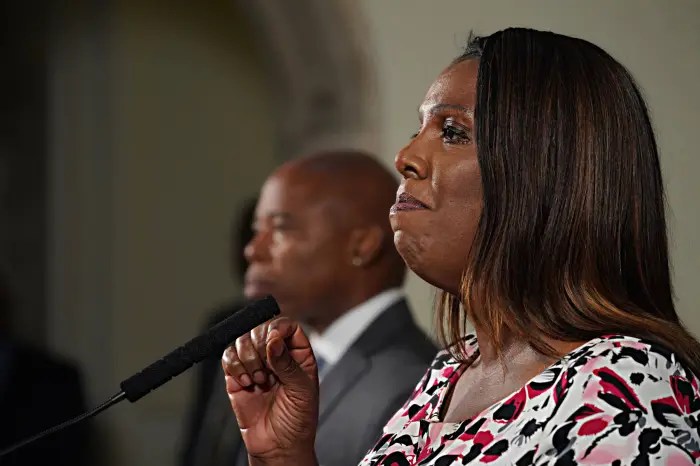WASHINGTON (Reuters) – Republican members of the U.S. Senate fired warning shots to President-elect Joe Biden that they may be prepared to stand in the way of his Cabinet appointments, despite the long-held tradition of a new president having the right to choose who will run government agencies.
The threats, from senators including Marco Rubio and Tom Cotton, highlighted the importance of a pair of runoff elections in Georgia in early January that will determine whether Republicans keep majority control of the Senate, or cede it to Democrats after six years in the minority.
On Monday, Biden’s team announced some of his Cabinet picks, including former State Department officials Antony Blinken as secretary of state and Linda Thomas-Greenfield as ambassador to the United Nations and former CIA official Avril Haines as director of national intelligence.
Biden also is also expected to tap former Federal Reserve Chair Janet Yellen as Treasury secretary.
“To the United States Senate. I hope these outstanding nominees received a prompt hearing, and that we can work across the aisle in good faith to move forward for the country,” Biden told reporters on Tuesday.
Some Senate Republicans – most of whom have yet to acknowledge Biden’s defeat of President Donald Trump or refer to Biden as president-elect – quickly condemned his picks.
Rubio, a senior member of the Foreign Relations Committee, which has jurisdiction over State Department nominees, wrote on Twitter that Biden’s Cabinet picks “will be polite & orderly caretakers of America’s decline.”
Cotton quoted 2014 criticism by former Defense Secretary Robert Gates that Biden has been wrong on “nearly every” major foreign policy issue. “Now he’s surrounding himself with panda huggers who will only reinforce his instincts to go soft on China,” Cotton wrote on Twitter.
The Senate has traditionally backed most presidential nominees. But that has changed in the current era of bitter partisanship.
Influential Senate Republican John Cornyn told reporters he assumed Cabinet picks would be negotiated if Biden becomes president.
Senate Majority Leader Mitch McConnell has not hesitated to wield the power of his office since Republicans won Senate control in 2014. He blocked dozens of nominations from Democratic then-President Barack Obama and pushed through even some Trump nominees who faced objections from members of his own party.
“If I’m still the majority leader of the Senate, think of me as the ‘Grim Reaper,'” McConnell said last year.
McConnell opposed Yellen as Fed chair in 2013, but her years of testimony in front of congressional leaders in that role make her a known commodity on Capitol Hill.
Georgia voters go to the polls on Jan. 5 for two runoff elections pitting strong Senate Trump supporters David Perdue and Kelly Loeffler against Democratic challengers.
If Democrats defy expectations and win both Georgia races, the Senate will be divided 50-50, but they will have an effective majority and the ability to confirm Biden nominees without Republicans. Vice President Kamala Harris will be able to break any ties.
Lara Brown, director of the graduate school of political management at George Washington University, said Republicans would be more obstructionist in the Senate if they win both of the Georgia elections.
“They will feel that the wind is at their backs. They will feel that they won even if Trump isn’t on top of the ticket. They will feel that there is an advantage for them to continue the campaign,” she said.
Democrats’ complaints of obstructionism have not swayed U.S. voters. Republicans gained seats in the Democratic-majority House of Representatives on Nov. 3 and will have at least 50 seats in the new Senate.
McConnell himself coasted to re-election, winning his Kentucky Senate race with a comfortable 20-percentage-point margin.
McConnell aides did not respond to requests for comment on Biden’s nominations. The majority leader has not answered questions about the issue at recent news conferences.
When Obama nominated Blinken as deputy secretary of state in 2014, he was confirmed with only two Republican votes in what was then a Democratic-majority Senate.
Support for Yellen was more bipartisan. She received 11 Republican votes.
Senate Democrats praised Biden’s Cabinet choices, and said Republicans should be prepared to give the new president freedom to set up his administration, especially as the country faces the coronavirus pandemic and other crises.
“I assume that the president-elect has every right to have his own nominees be confirmed and go through a confirmation process,” Senator Bob Menendez, the top Democrat on the foreign relations committee, told Reuters. “That can be robust, but to suggest you are not going to confirm is to suggest that you don’t want the nation’s work to be done.”
Biden’s campaign noted that Republicans said they would support experienced and qualified nominees.
“We don’t need a fabricated crisis in the Senate and I don’t think the American people are going to tolerate that if there’s a refusal to move forward with qualified nominees,” Biden adviser Jen Psaki told CNN.
(Reporting by Patricia Zengerle, additional reporting by Richard Cowan; editing by Mary Milliken and Jonathan Oatis)























